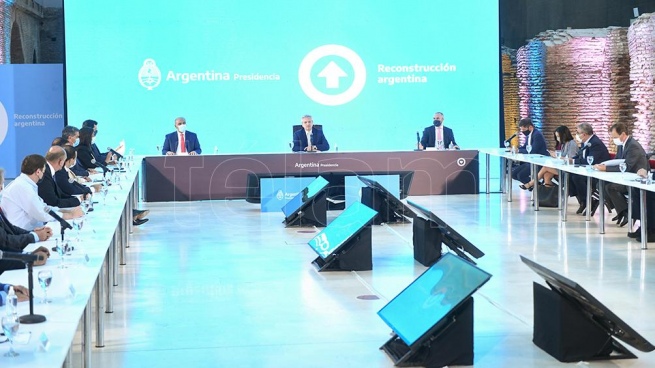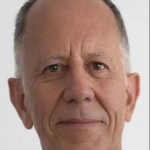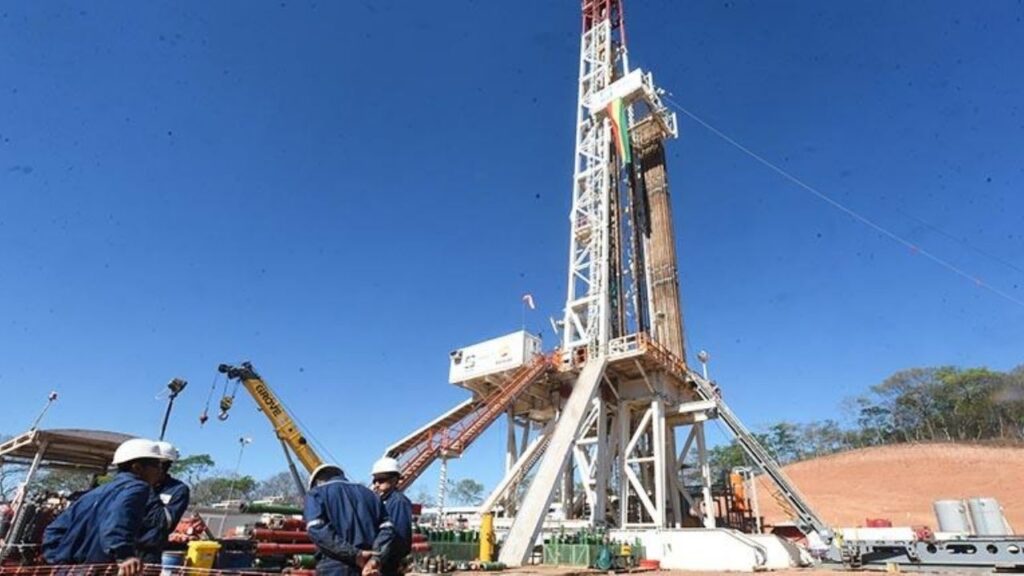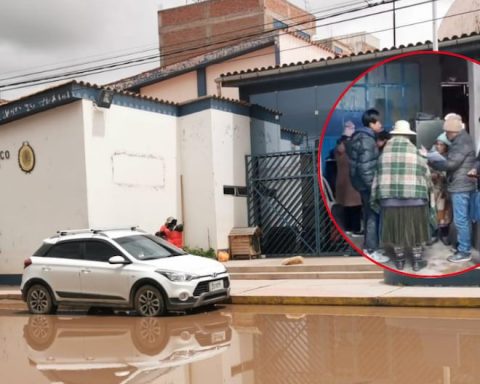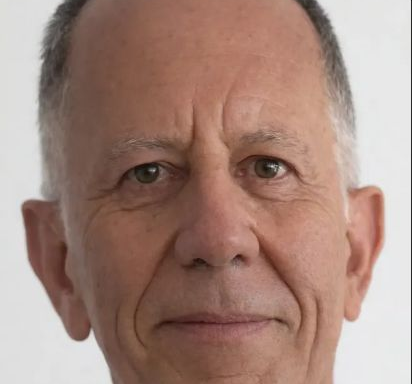The President reaffirmed that “a suitable restructuring” of the debt with the IMF will be achieved.
WATCH VIDEO
President Alberto Fernández warned that “to adjust the economy is to stop growing” and that for the Argentine government “the word adjustment is banished in the discussion” that is being carried out with the IMF for the payment of the debt.
Fernández reaffirmed that Argentina “is going to achieve a convenient restructuring” of the debt with the International Monetary Fund (IMF) and warned that the loan contracted by the government of Mauricio Macri will exceed his mandate and even that of whoever governs the country as of 2027.
Fernández recalled that “the problem of Argentina’s foreign debt is” very serious “, both with private creditors and with the IMF, inherited from the government of Cambiemos, and made it clear that this situation will generate” a strong conditioning “, not only for today, but also “for years to come.”
“The solution of the debt is a State policy and, as such, we must assume it. Our proposal is not to see how the Government of Alberto Fernández gets rid of the problem, but to see how Argentina finds the best ways to reach the best solution in a very complex scenario, “said the president.
In this regard, he defined that “a sustainable debt that is based on adjustment reasons is not possible. For us to adjust is to shrink the economy, stop growing and make the obligations we have with external creditors more difficult.”
Along these lines, he insisted that “the word adjustment is banished from the discussion” and stated: “We have achieved this year that the primary deficit is lower, not as a consequence of the fact that we stopped paying pensions or investing in education, but as a result of the growth. That is the virtuous path we have to follow. “

For the President, “if solving the debt problem means that societies are postponed and stop growing, that is not a good solution. That is the central logic of our proposal and that is how we will continue negotiating.”
The head of state participated this afternoon, at the Casa Rosada Bicentennial Museum, in the presentation that the Minister of Economy, Martín Guzmán, made before governors of the entire country on the negotiations that the national government carries out with the multilateral credit organization headed by Kristalina Georgieva.
There, Fernández explained that between 2015 and 2019 the debt with external creditors increased by “more than one hundred billion dollars”, restarting the debt process of previous decades.
In another part of his speech, Fernández reaffirmed his conviction that Argentina is going to “achieve a restructuring” of the US $ 44 billion debt with the IMF that is “convenient” for the country, but assured that this will only be “one step. forward “in achieving” that these credit obligations weigh as little as possible “for the Nation.
The meeting that was taking place with the governors of the entire country and the Minister of Economy, Martín Guzmán, was convened so that “we understand with total clarity what we are doing” and to “make the most of the current situation with respect to negotiations with the IMF, said the president.
The President also asked to see the debt as a “sequence” and not to interpret an eventual agreement with the IMF as a “final or point of arrival.”
“Some of us have already done it. Last year we managed to restructure the debt with private creditors, and now we are discussing with the IMF, but in the meantime we also did things for the debt,” he said from the Bicentennial Museum in reference to the discussion regarding the surcharges.

The governors present
The governors of Buenos Aires, Axel Kicillof; Catamarca, Raúl Jalil; Chaco, Jorge Capitanich; Entre Ríos, Gustavo Bordet; Formosa, Gildo Insfrán; La Pampa, Sergio Ziliotto; La Rioja, Ricardo Quintela; Misiones, Oscar Herrera Ahuad; Neuquén, Omar Gutiérrez; Río Negro, Arabela Carreras; Santa Fe, Omar Perotti; Tierra del Fuego, Gustavo Melella; Tucumán, Osvaldo Jaldo. Those from San Luis, Alberto Rodríguez Saá, Santiago del Estero, Gerardo Zamora, and Santa Cruz, Alicia Kirchner, are present by videoconference.
Also present, for Chubut, were the Minister of Economy and Credit, Oscar Antonena; Córdoba, the provisional president of the Legislature, Oscar González; Corrientes, the lieutenant governor, Pedro Braillard Poccard; Jujuy, the deputy governor, Carlos Haquim; Mendoza, the Minister of Economy and Energy, Enrique Vaquié; Salta, the lieutenant governor, Antonio Marocco; San Juan, Lieutenant Governor Roberto Gattoni; and Santa Cruz, the lieutenant governor, Eugenio Quiroga.
The President was accompanied by the Chief of Cabinet, Juan Manzur; the Minister of the Interior, Eduardo “Wado” De Pedro; and the secretaries, of Strategic Affairs, Gustavo Beliz, and General of the Presidency, Julio Vitobello.
The President assured that “there is no possibility that Argentina has tariffs”
Alberto Fernández assured that “there is no possibility that Argentina has tariffs” while the Frente de Todos (FdT) is governing, and pointed out that, in any case, the cost of services will have to “be corrected in a reasonable way and taking into account the ability to pay “of the company counts.
He also affirmed that “every economic program in Argentina goes through the recovery of the real wage.”
“We are not going to sign any agreement that implies an excessive and excessive rate increase,” remarked Fernández when participating in the presentation that the Minister of Economy, Martín Guzmán, gave to the country’s governors to explain the status of the debt negotiation with the IMF.
The president said that “there is no possibility that Argentina will have tariffs in the coming year or in the following years.”
“As long as we are governing the rates, they will have to be corrected in a reasonable way and taking into account the income and payment capacity of a given society at a given moment,” he explained.
Fernández also affirmed that “the percentages of increase are very far from assuming increasing or important rates, or rates for Argentines.”
On the other hand, the head of state stated that “every economic program in Argentina involves the recovery of real wages,” so – he said – “the income of those who work must exceed the inflationary rhythm.”
“We come from a loss of 20 points in the previous 4 years and we have to recover the real salary as soon as possible, in the best way, because that also improves domestic consumption, which moves more than 70% of GDP,” said the president.
